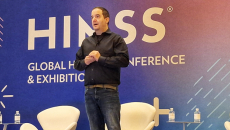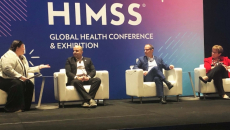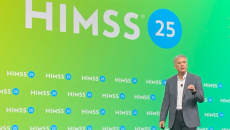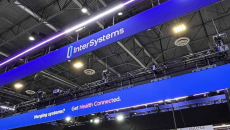Artificial Intelligence
More malicious actors than ever can target healthcare organizations due to AI lowering the bar for hackers.
The third in a three-part series, UNC System Director For Analytical Solutions Greg Kuhnen teams up with UNC Manager of Data Science Engineering Ram Rimal to discuss ensuring responsible adoption of AI.
Health system execs discuss having the right business partner, integrating technology and ROI on AI.
Chad Dodd, vice president of product management at athenahealth, sat down with MobiHealthNews to discuss Ambient Notes and how the company's AI-enabled products have evolved.
Challenging staff coordination, problems with patient flow, poor equipment management – these are responsible for significant waste, says the CEO of Kontakt.io. Succeed with those, then move on to the exciting things like artificial intelligence.
Tom Leary, senior vice president and head of Government Relations at HIMSS, gives a rundown of healthcare priorities.
Punit Singh Soni, founder and CEO of Suki, joined MobiHealthNews at HIMSS25 to discuss its experience over the years at the conference as the company has grown.
At HIMSS25, Gen. Paul Nakasone, former director of the National Security Agency, said the unique challenges and opportunities of artificial intelligence in healthcare mean, "we all must be willing to take a few microsteps."
Chris Althoff, an EVP at emtelligent, says generic artificial intelligence systems lack the specialization needed to navigate medical terminology and the unique operational realities that exist across health systems.
The electronic health record, called IntelliCare, uses the latest AI technology with the aim to enhance workflows and optimize operations for health systems undergoing rapid digital transformation.









